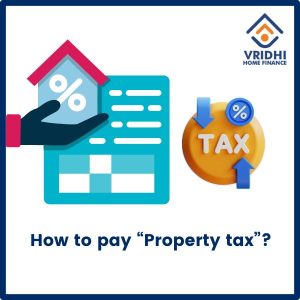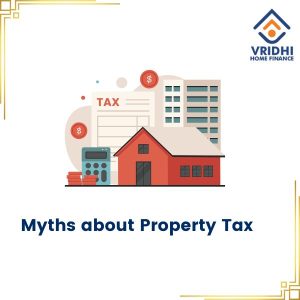November 18, 2024
Property Tax: Basics, Calculation, and Benefits

Everything You Need to Know About Property Tax and How It’s Calculated
Property tax is a vital aspect of owning real estate. It serves as a major source of revenue for local governments and municipalities, funding essential services like education, public infrastructure, and sanitation. As a property owner, understanding property tax and how it is calculated is crucial for financial planning. This article breaks down the fundamentals of property tax and explains its calculation in a simple and clear manner.
Read More : What is Home Loan Sanction letter ?

What is Property Tax?
Property tax is an annual tax levied by local governing authorities on real estate owners. It is based on the assessed value of the property, which includes the land and any structures built on it. Property tax varies depending on the property’s location, size, type, and use (residential, commercial, or industrial).
Local authorities use property tax revenue to fund civic amenities such as road maintenance, schools, waste management, and parks. By paying property tax, property owners contribute to the development and upkeep of their community.
Why is Property Tax Important?
Property tax is critical for maintaining public services and infrastructure. Here are some reasons why it is important:
1. Revenue for Local Authorities
Property tax provides local governments with the funds needed to deliver essential services. Without it, the quality of services like garbage collection, water supply, and public transport would decline.
2. Supports Community Development
The revenue generated from property tax is reinvested into the community to build schools, hospitals, and recreational facilities. It helps improve living standards for all residents.
3. Encourages Responsible Ownership
Paying property tax reminds owners of their responsibilities towards society. It creates a sense of accountability for maintaining and utilizing property effectively.
How is Property Tax Calculated?
The calculation of property tax depends on various factors and formulas, which may vary from one location to another. However, the general process involves three key components:
1. Annual Rental Value (ARV) System
In this system, the tax is based on the annual rental income that the property could generate. Factors like the property’s size, location, and use are considered to estimate its rental value.
2. Capital Value System (CVS)
Under the CVS, property tax is calculated based on the market value of the property. Local authorities assess the market value and apply a fixed percentage as the tax rate.
3. Unit Area Value (UAV) System
In the UAV system, tax is calculated based on the per-unit price of the property’s built-up area. Authorities fix the rate per square foot for different property types and locations.
Formula for Prop. Tax Calculation
The general formula for property tax is:
Property Tax= Base Value of Property × Built-up Area ×Applicable Tax Rate
This formula may vary depending on local tax laws and valuation methods.
Explore More : What is NACH in housing finance?

Factors Influencing Prop. Tax
Several factors affect the amount of property tax you need to pay:
1. Location
Properties in urban areas with better amenities are taxed higher than those in rural areas. The locality’s infrastructure and facilities also influence the tax rate.
2. Type of Property
Residential, commercial, and industrial properties are taxed differently. Commercial properties often attract higher tax rates due to their revenue-generating nature.
3. Age of Property
Older properties may receive depreciation benefits, reducing their taxable value. Conversely, new constructions may attract higher taxes initially.
4. Amenities and Facilities
Properties with modern amenities like elevators, swimming pools, or security systems may have higher tax liabilities compared to those with fewer facilities.
How to Pay Prop. Tax?
Paying property tax has become more convenient with the availability of online and offline options. Here’s how you can pay:
1. Online Payment
Most municipal authorities provide online portals for property tax payments. Log in to the official website, enter your property details, and make the payment using your preferred method.
2. Offline Payment
You can also pay property tax at designated municipal offices. Fill out the required forms, provide property details, and pay using cash, cheque, or demand draft.
Common Myths
Property tax often comes with misconceptions. Let’s address a few of them:
1. Property Tax is Fixed
Fact: Property tax rates can change depending on local government policies, inflation, or property reassessment.
2. Only Homeowners Pay Property Tax
Fact: Both homeowners and commercial property owners are liable to pay property tax.
3. Non-Payment Has No Consequences
Fact: Non-payment of prop. tax can lead to penalties, interest, and even legal actions like property seizure.
Benefits of Understanding Prop. Tax
Knowing how it works helps you plan your finances better and avoid penalties. Here are some benefits:
Budgeting: You can allocate funds for annual tax payments, avoiding last-minute financial strain.
Legal Compliance: Understanding tax obligations ensures you remain compliant with local laws.
Better Decision-Making: Knowledge of property tax helps you choose properties in areas with favorable tax rates.
Conclusion: Stay Informed and Compliant
Property tax is a crucial responsibility for property owners and plays a vital role in community development. By understanding what property tax is, how it is calculated, and the factors influencing it, you can manage your tax liabilities effectively. Always stay updated on local tax regulations and ensure timely payments to avoid penalties.
Vridhi Home Finance offers a range of home loans to help you achieve your property goals. Contact us today to explore our tailored financial solutions!



